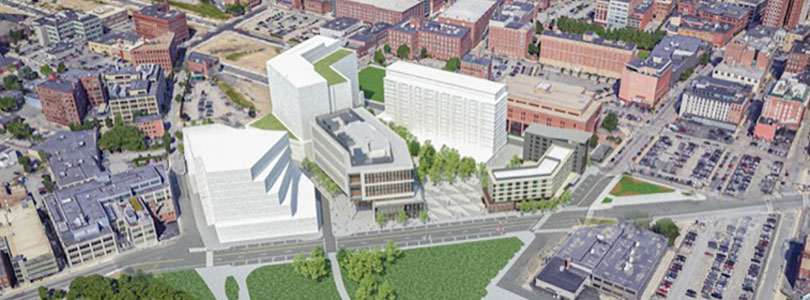A Corporatist Partnership to Solidify a Top-Down Society in RI
Corporatism is a top-down socio-political structure that divides society into groups that all act politically through their designated leaders. In the neo-corporatist flavor, the emphasis is on tripartism, wherein the government, labor union organizers, and the business elite work together to run society.
Dan McGowan reminds us in the Boston Globe of the creep of this model into Rhode Island governance:
As aides to Governor Gina Raimondo spent the spring mulling what to do about Care New England’s planned merger with Partners Healthcare in Massachusetts and whether or not to intervene in the struggling Providence school system, they approached the same group for help.
The Partnership for Rhode Island, a little-known but influential organization comprised of 12 of the state’s most powerful executives – whose companies shell out $100,000 a year to be members – agreed to pay for a consultant to assist Care New England, along with Lifespan and Brown University, as they worked to try and establish an academic health center.
An essay I wrote in December 2016 captures the interrelationship between the Raimondo administration (including her Commerce czar), her donors, the Brookings Institution, Wexford Science and Technology, the RI Foundation, and this Partnership. Early on, Raimondo donors funded the Brookings report that, in a sense, ratified economic policies the governor was already implementing and suggested the Partnership, and now the business elites are quietly funding policy initiatives, especially having to do with health care and education — as with the Johns Hopkins study of Providence schools.
The Partnership brings to mind something humorous RI labor union Pooh Bah George Nee told Ellen Liberman for a Rhode Island Monthly article about his occupation:
Labor leaders and historians agree that worker militancy is rising. “I think there’s a lot of very positive things happening locally and nationally, and the amount of organic activity demonstrated across the board is indicative of the fact that people have reached the point of: “I’m mad as hell and I’m not taking it anymore,” says George Nee, president of the Rhode Island AFL-CIO. “People see the importance of labor. At the end of the day, unions are the major countervailing force to corporations and the power structure. If we aren’t able to fight back, who is going to do it in the workplace?”
What’s funny is that, after a legislative session that was notably friendly to labor unions, the central figure of that group would have the chutzpah to talk about a “power structure.”
Nee is the power structure, or part of it, at least, and these big-money corporate funders are another part. Nee may continue to use the rhetoric of opposition to corporations, but I don’t see labor unions going after the Partnership, despite the fact that it’s meddling in areas of strong unionization: hospitals and schools.
The question all Rhode Islanders should ask themselves is where their vote is supposed to fit in with all of this cooperation.
Featured image: The original concept drawing of the new Wexford complex in Providence.




